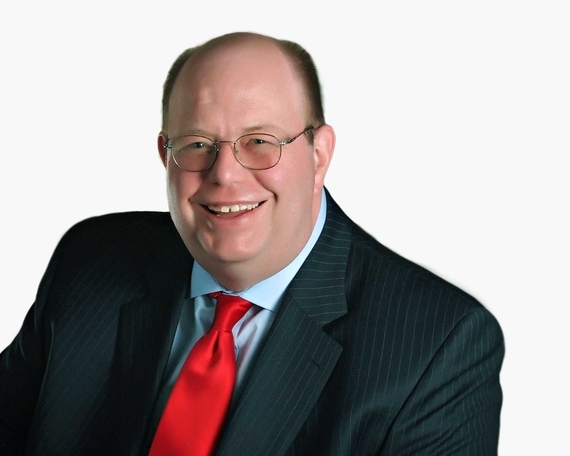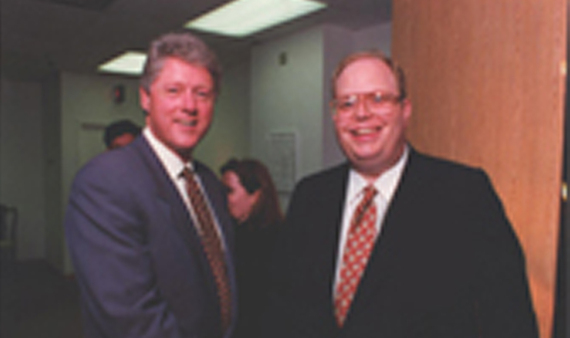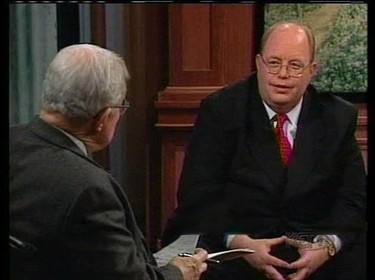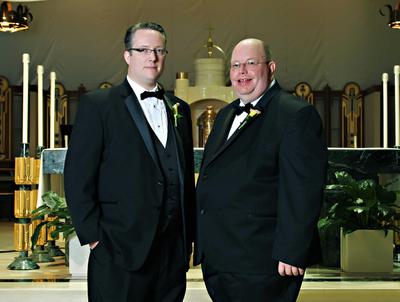"If only you believe like I believe, baby
We'd get by
If only you believe in miracles, baby
So would I"
-Jefferson Starship
Motivational gurus like Brian Tracy and Dan Sullivan often describe goal setting as a S.M.A.R.T. system. All goals must be:
-Specific
-Measurable
-Attainable
-Realistic
-Timely
I plan on weighing 199 pounds on December 31, 2015. To do that, I will need to lose 175 pounds. I'm writing a book, Project 199: My Quest to Lose 175 pounds, about my journey.
Some people think aiming to lose 175 pounds is insane. For me, it is the only way to get there. When I've set "impossible" goals in a business setting, I've always made them. I get excited and motivated. Small goals don't interest me at all.
I have a better chance of losing 175 pounds than I do 17.
I was tempted to call my book "The Entrepreneur's Weight Loss Plan" as most successful entrepreneurs are like me. We have "impossible dream" style goals. If we don't have those kinds of goals, we tend to get lost in the weeds.
Google has a goal of digitizing every piece of information in the world. They are a lot closer now than when they started the company. Same with Amazon. Same with any organization or person who wants to break through the negativity and artificial barriers that the world throws in front of them.
Letting the world know that I plan to lose 175 pounds makes it that much closer to being a reality. If you go back to the SMART tenets of goal setting, my goal is specific, measurable and timely. I think it is attainable and realistic.
There are a number of reasons I will make it. The first is accountability. This is the first time I have EVER told anyone, other than my doctors and my wife, my actual weight. Even when it was far lower than now, I would never tell anyone. Now, I am sharing with millions of people who read Huffington Post and millions more on social media.
That is some serious accountability.
Holding a deep dark secret is as much a burden as the weight. It messes with your self-confidence and self-esteem at some level. Hiding something is not how I operate. In fact, I am one of those people who puts all his business in the street. I was made for Facebook and social media long before it was invented.
Having a publicly stated number and publicly stated goal is a huge step. It gives that extra bit of incentive to achieve the goals and a chance to throw it back in the faces of those who think it can't happen. Negative stimulus seems to spur people who start their own businesses or set ambitious goals. Many do great things as a F____ you to people in their lives trying to kill their dreams.
I'm good at making dreams happen. Mark this one down.
Yo-Yo Dieting through the years.
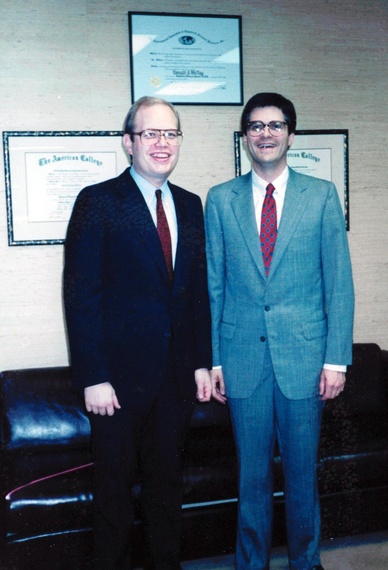
In 1989 with Kentucky Secretary of State Bob Babbage (Alison Lundegren Grimes currently holds the office.)
With President Bill Clinton in 1993
My weight has been the only piece of information I won't share with the free world. It's also the only area of my life where I have not been successful. Making this quest so public is partially to inspire other people, but primarily to inspire myself. Now that I am "out," I feel a lot better. Even before anyone has read it.
When you are morbidly obese, it's time to develop new strategies. This is radical, but will work. I am very excited and can see the end zone. At the other end of the field.
People will ask if the goal is realistic. Since high school, I've only weighed less than 199 pounds in one year. In 1989, I started at 270 and got to 179 with an all-liquid, medically-supervised diet. I didn't consume over 500 calories a day for six months. When I started eating again, I gained between half a pound and a pound each week. When I went back for my second run at the liquid diet, three years later, I weighed 295 pounds. I went back five times and never lost less than fifty pounds. Every time, I gained all the weight back and at least 20 more.
This is why I am doing bariatric surgery. I know I can get it off, and the surgery will help to keep it off.
Is Food is an Addiction?
"I hurt myself today
To see if I still feel
I focus on the pain
The only thing that's real"
-Trent Reznor song that was made popular by Johnny Cash
"Well the devil made me do it the first time
The second time I done it on my own"
-Billy Joe Shaver
My mentor is Kentucky journalist, author and philanthropist Al Smith. He nearly drank himself to death in New Orleans. In his mid-30s and written off by most people, a bus dropped him in the small town of Russellville, Kentucky, where he stopped drinking, turned his life around and became one of the greatest living Kentuckians. A great moment of my life was watching Al be honored by AA for staying sober for 50 years. At age 88, Al understands that one drink could put him back on the road to ruin and will not touch alcohol under any circumstances.
When I was allowed to witness Al's great feat, it was made extremely clear that it was a onetime exception to allow Al's family and a small group of close friends witness the event, but we were never to tell anyone the details, or who was in the room. Normally they don't allow people who are not alcoholics in the room. The idea of Alcoholics Anonymous is to be anonymous and the philosophy is based on the outlook of "one day at a time."
Publicly stating that I plan to lose 175 pounds goes against everything they believe in.
I'm a big believer in 12 step programs. My dear friend Yvette Hourigan, who heads up Kentucky Lawyer's Assistance Program (KYLAP) for the Kentucky Bar Association and recently won a national award (the David S. Stoner Uncommon Counselor Award) for her nonstop work in educating the Kentucky legal community about depression, suicide, and addiction. I've sent numerous attorney friends to Yvette and written about her program several times. I've also had Al Smith talk to at least 100 people. I've lost a number of very good friends, and very good people, to addiction and suicide. I don't have another tool that works as well as Yvette and her organization.
I'm going to talk about the concept of "trading addictions" at length in my book, but I always thought that if food is an addiction, it is a tricky one. I've proven several times that I can give up food completely for months at a time. If I could have given food up, the same way that people give up drinking or cigarettes, I probably could have done it. Outside of overeating, the rest of my life is as exciting as Donny Osmond's. I rarely drink and I have never even seen drugs like cocaine, heroin, or meth. My only experience with cigarettes or smoking pot happened in high school (I got a lot of things out of my system in high school), and a childhood of watching people gamble brought me to the same conclusion as casino owner Steve Wynn: I'd much rather own a casino than bet in one. I've written bestselling books about lotteries and gambling, but rarely do it myself. I know the percentage will always favor the house.
Thus, if I am going to trade a food addiction for something else, I'm not sure what it would be. It does concern me. My sister had bariatric surgery a decade ago and almost immediately became a non-functioning alcoholic. She had been a heavy drinker before the surgery, but went completely off the rails afterwards. She was going through severe lifestyle changes like divorce and moving to California so I can't pinpoint everything on the surgery, but I have to think it was a factor. She moved back with my mother in Kentucky and cleaned up her life. She had just gotten the job she dreamed of at Proctor and Gamble when she accidentally fell down a flight of steps. I thought at her death that she had probably relapsed, but the autopsy showed that there were no substances of any kind in her body. Just one of those things that could happen to anyone.
I don't know if food is an addiction, but if it is, I need to trade food for a healthier kind of addiction.
Yo-Yo Dieting Part II
I weighed 374 pounds on my wedding day in 2012. My all time high.
About 20 pounds lighter in 2014. Yes, that is Jerry Springer in the photo with me.
Making our Dreams Come True
"Never heard the words impossible, this time's there no stopping us
Doing it our way"
-Theme to the television show Laverne and Shirley
A dream without a goal is a wish. A goal without a plan is just a dream. It's a phrase you hear often, but very true. So what is my plan?
I know I can lose large amounts of weight. Thus that knocks the impossible down to realistic. I am optimistic and going at it with an "all in" strategy.
My primary tool will be bariatric surgery, followed by changes in diet, exercise and lifestyle.
The surgery will get me a long way towards 199, but not all of the way there. There is a formula for calculating your expected weight loss. You take your current weight, subtract your ideal weight and the remaining amount is my excess weight.
Thus in my situation I need to lose roughly 200 pounds to get to my ideal weight. The Gastric Sleeve is usually good for about 50 percent of the weight which would put me at 275 pounds. Not as heavy, but still obese. My surgeon, Dr. Derek Weiss, (who will a primary player in my book) thinks that 70 percent is an attainable goal. That would get me to 235 pounds, with only 36 more pounds between myself and 199.
I'll be out of the obese category at 235. I suspect that I won't be diabetic anymore and the boatload of blood pressure and sleep medicines that I take will be on their way out. I will eventually be able to get rid of my CPAP that allows me to breathe at night, but probably need to get to 199 to make that happen.
Thus, stopping at 235 is not an option. The reason I chose 199 is that breaking 200 pounds has been my great white whale. I got to about 205 the summer between high school and college and stayed there. I would drop as low as 202, or go back up to 210, but was unable to break the barrier. It's my version of breaking the sound barrier or breaking the four minute mile.
Something psychologically held me back. I didn't know anything about nutrients and would try silly and dangerous diets to break the mark, but my body always shut down. When I did pass the 200 point in 1989, I knew I had broken a barrier and could do it again.
On the other hand, 199 is my "impossible" number. When I break it, I will have overcome every phobia about my weight that has been bouncing around in my head for decades. When I keep my weight at that number, I will go a long ways towards giving myself a normal, healthy life expectancy.
At my current weight, my life expectancy is fairly grim. I've ducked doing major damage to my body, but you can only win the lottery so many times. I want to give myself the best odds I can get.
And will by December 31, 2015.
My sister's experience and handling the money for the families of people who died having bariatric surgery kept me away from it for the past decade. (I wrote a long piece about this for Huffington Post.)
I did enough research to lecture on the topic at John Hopkins Medical School and decided it was my best chance. When I decided to make a move, I found that I could not purchase an individual health insurance plan or a plan for my small business that would even cover the COMPLICATIONS of weight loss surgery. It still irks me. If I worked for a large corporation, I could get them to pay for the surgery. If I go completely broke and wind up on Medicaid, they will also pay for the surgery. I'm 55 years old. If I live for 10 more years and stay healthy enough to have the surgery, Medicare would pay for it at age 65. If I lived in one of 23 other states besides Kentucky, I could purchase insurance from a health care exchange that would pay for it.
If there was ever a provision in the health care laws that sticks it to self-employed entrepreneurs and small businesses, this would be one of them. I am generally a supporter of the Affordable Health Care Act, but they dropped the ball on this one. Bariatric surgery should be offered to everyone.
I'm paying for health insurance, with 100 percent coverage, for my employees, I'm paying for my surgery completely by myself. It is more money than I paid to buy my car, but the decision is worth it. A car can't let me live a longer and healthier life. Bariatric surgery can.
Within the last year, I was referred to Dr. Derek Weiss, Bluegrass Bariatric, who participates in a program called BLIS. BLIS is an insurance-related program that covers the complications of surgery. I've done several interviews with founder Regi Schindler, and I'm definitely going to use BLIS for my surgery. It's a terrific idea and Regi has been a straight shooter. I will be writing more about Dr. Weiss, Regi and BLIS in a future article, and they are important players in my book.
All of this circles back to the idea of setting difficult goals. A business concept more than a weight loss one. I don't remember a lot about high school (as noted, I was working a lot of things out of my system), and never liked poetry, but an English teacher at Covington Catholic High School named Peggy Bertlesman (if you recognize her family name, her husband is a longtime federal judge) had us read the poem "Andrea del Sarto" by Robert Browning with the line, "But a man's reach should exceed his grasp, Or what's a heaven for?" The line stuck with me all these years, along with Man of La Mancha song "The Impossible Dream," which was one of my parent's favorites.
If you dream big enough and set up a plan to get there, the impossible dream suddenly becomes realistic and doable.
I'll see you at 199, but will be writing all along the way.
Don McNay is a best-selling author and the owner of McNay Consulting based in Richmond, Kentucky. http://www.mcnayconsulting.com) He has started numerous successful businesses such as McNay Settlement Group http://www.mcnay.comKentucky Guardianship Administrators http://www.kentuckyguardianship.com and RRP International Publishing and Digital Media http://www.rrpinternational.org
